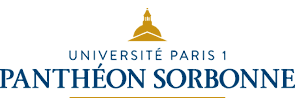Actualités du laboratoire | 2019
Quatre conférences de Benedetta Rossi, maîtresse de conférences à l’Université de Birmingham, Royaume-Uni
Les 18, 21, 31 janvier et 8 février 2019
Benedetta Rossi est une anthropologue et historienne de l’Afrique, formée en Angleterre et en poste à l’Université de Birmingham. Ses recherches portent sur les questions de travail, esclavage, migration, environnement, développement, genre et sexualité en Afrique et dans une perspective globale au XXe siècle. Son premier livre, From Slavery to Aid: Politics, Labour, Ecology in the Nigerien Sahel, 1800-2000, publié en 2015 par Cambridge University Press, analysait le passage d’une société dans laquelle l’esclavage jouait un rôle fondamental à une société modelée par les objectifs et les méthodes du développement international dans la région d’Ader au Niger. Elle achève actuellement la rédaction de son prochain livre sur Slavery and Emancipation in Twentieth Century Africa, à paraître chez Cambridge University Press, tout en travaillant à la co-édition et co-rédaction d’une Histoire mondiale de l’esclavage à paraître au Seuil, en collaboration avec Paulin Ismard, Claude Chevaleyre et Cécile Vidal.
« Gender, Sex, and Slavery »
Dans le cadre du séminaire « Histoire mondiale de l’esclavage », organisé par Paulin Ismard, Claude Chevaleyre, Benedetta Rossi et Cécile Vidal
This lecture zooms out, geographically and conceptually, from the historical analysis of sexual slavery in African conflicts, and explores the nexus between slavery, sex, and gender from a broad comparative and theoretical perspective. How can historians conceptualize the relation between gender and slavery in a way that enables the meaningful integration of different regional contexts within the same analytical framework? Based on selected case studies from the biographies and autobiographies of enslaved men and women in the Americas, Africa, Asia, and Europe, the lecture asks what gender does to enslavement, and vice versa, what enslavement does to gender. It then considers how changes in historical regimes of slavery (e.g., legal abolition) and changes in dominant ideas of gender (e.g. the emancipation of women and erosion of patriarchy) influenced forms of subjection in which gender and slavery converge into one institution, such as forms of sexual slavery or slave marriage.
- Vendredi 18 janvier 2019, de 14h à 18h – EHESS (salle 12) - 105 bd Raspail, 75006 PARIS
« Periodizing the End of Slavery: Colonial Law, the League of Nations, and Slave Resistance in the Nigerien Sahel, 1920s-1930s »
Dans le cadre du séminaire : « Les Afriques dans la longue durée : acteurs, savoirs, pratiques », organisé par Catarina Madeira-Santos et Elikia M’Bokolo
When, how, and why – if at all – did slavery end in the Nigerien Sahel? What processes facilitated the emancipation of enslaved persons? What were the strategies of colonial administrators, slave owners, slave traders, slaves, and slave descendants? In the first two decades following France’s occupation of the Central Sahel legal abolition did not lead to the suppression of slavery because initially laws were not enforced. Slavery started being undermined not when it was legally abolished in 1905, but in the 1920s when the League of Nations put pressure on colonial empires to enforce their own anti-slavery legislation.
- Lundi 21 janvier 2019, de 15h à 18h – EHESS (salle de réunion) - 96 bd Raspail, 75006 PARIS
« Slavery in Contemporary African Wars? »
Dans le cadre du séminaire : « Violence, vulnérabilité,
temporalité. 2 », organisé par Elisabeth Claverie et Michel Naepels
Is slavery rampant in contemporary Africa? A wide range of researchers, activists, and legal specialists designate the massive abductions and captivity reported for recent African conflicts as slavery. They highlight the gendered nature of these phenomena: crimes of forced marriage and sexual slavery perpetrated against women are particularly visible and debated. But not everyone agrees that they should be defined and understood as slavery. This lecture examines different types of sources on recent conflicts in Sierra Leone, Uganda, the Democratic Republic of Congo, and Northern Nigeria. It asks who defines these phenomena as slavery, who doesn’t, in which circumstances, and with what consequences. Secondly, the lecture examines debates over the interpretation of the underlying causes of these phenomena: positions are divided between, on the one hand, perspectives that blame gender discrimination in African institutions and ‘culture’, and on the other perspectives that blame activists and humanitarian organizations for imposing their allegedly 'Western' representations and agendas on African societies. Interpreters taking the latter position blame humanitarian actors and agencies for producing an image of African backwardness that is reminiscent of colonial discourse and instrumental to the entrenchment of Western control over African societies, including its most intimate spheres (i.e. marriage and sexuality). Naming slavery implies a particular chain of causation, which in turn legitimizes intervention; it triggers slavery’s suppression in accordance with the dictates of international human rights conventions and, where appropriate, through the intervention of institutions such as the International Criminal Court.
- Jeudi 31 janvier 2019, de 09h à 11h – EHESS (salle 11) - 105 bd Raspail, 75006 PARIS
« Euro-American Abolitionisms in the African Mirror »
Dans le cadre du séminaire : « Esclavage et post-esclavage : histoires, mobilisations et images dans le monde atlantique (XIXe-XXIe siècle) », organisé par Gaetano Ciarcia, Myriam Cottias et Céline Flory
- Vendredi 8 février 2019, de 16h à 19h – EHESS (salle 6) - 105 bd Raspail, 75006 PARIS
 Actualités
Actualités
Les Rendez-vous de Mondes Américains
 Rencontres scientifiques - Mercredi 24 avril 2024 - 09:00Le laboratoire Mondes Américains (UMR 8168) vous invite à la troisième édition des Rendez-vous de Mondes Américains, consacrés à la présentation, aux commentaires et à la discussion de quatre ouvrages récents et d'un film documentaire des (...)(...)
Rencontres scientifiques - Mercredi 24 avril 2024 - 09:00Le laboratoire Mondes Américains (UMR 8168) vous invite à la troisième édition des Rendez-vous de Mondes Américains, consacrés à la présentation, aux commentaires et à la discussion de quatre ouvrages récents et d'un film documentaire des (...)(...)
Entretien avec Marie Assaf, doctorante de l'EHESS, sur l’état de la recherche sur les politiques du handicap
Échos de la recherche -Doctorante de l'EHESS en Études Politiques (Centre d'études nord-américaines - Laboratoire Mondes américains), Marie Assaf travaille sur les politiques d'emploi à destination des personnes handicapées aux États-Unis. À travers son analyse ethnographique des pratiques et di (...)(...)
Les Rendez-vous de Mondes Américains
 Rencontres scientifiques - Mardi 18 avril 2023 - 09:30Mondes Américains (UMR 8168) organise la deuxième édition des Rendez-vous de Mondes Américains, consacrée à la présentation et à la discussion de sept ouvrages récents des membres du laboratoire.Les publications aborderont des thématiques his (...)(...)
Rencontres scientifiques - Mardi 18 avril 2023 - 09:30Mondes Américains (UMR 8168) organise la deuxième édition des Rendez-vous de Mondes Américains, consacrée à la présentation et à la discussion de sept ouvrages récents des membres du laboratoire.Les publications aborderont des thématiques his (...)(...)
Mondes Américains -
UMR 8168
EHESS
2, cours des Humanités
93322 Aubervilliers cedex
France
Tél. : +33 (0)1 88 12 03 99
Communication :
T. +33 (0) 1 88 12 03 44





